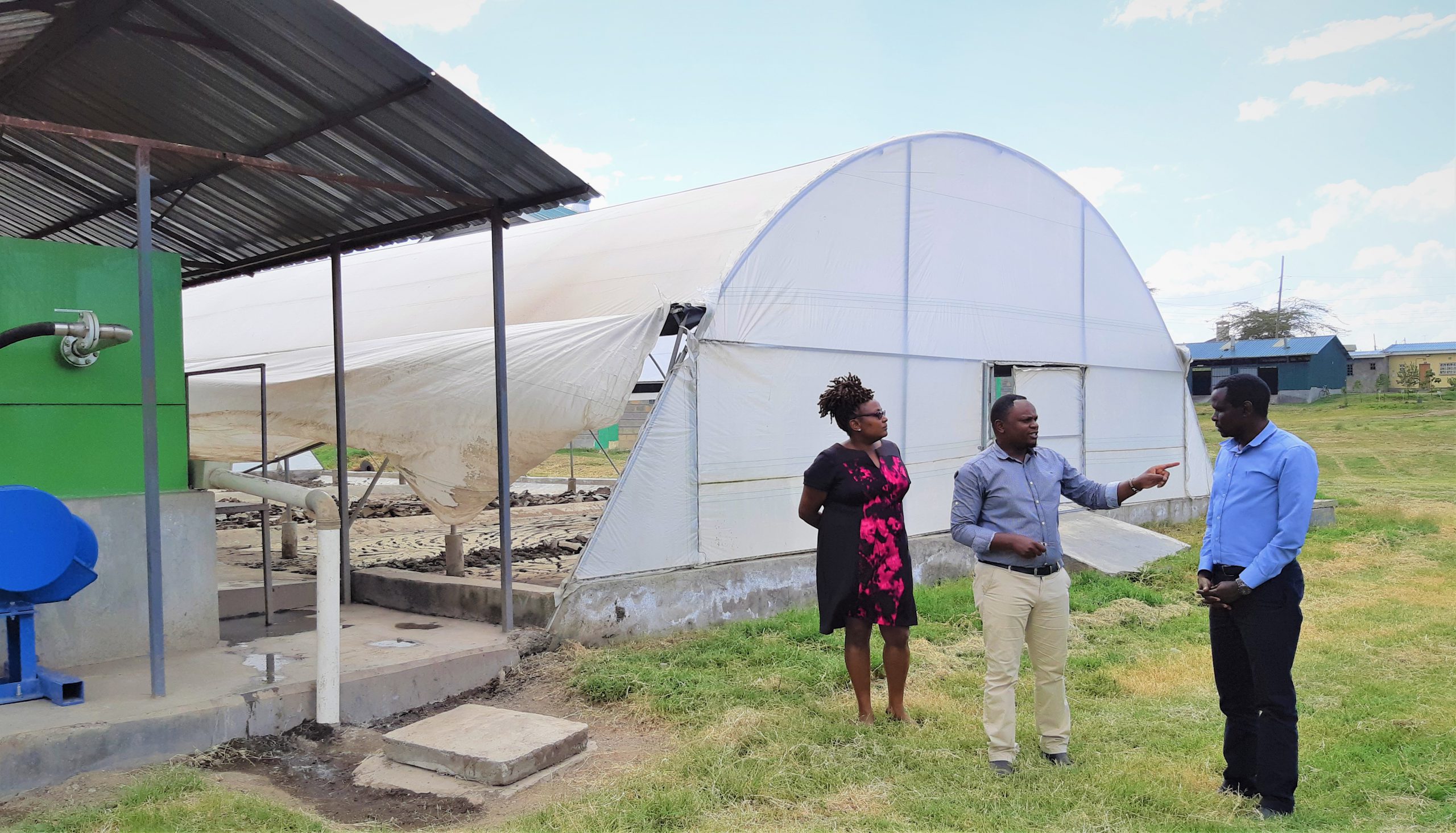Joshua Kibet is Aqua for All’s Water and Sanitation Finance Advisor based in Kenya. The COVID-19 outbreak brought an abrupt halt to continuous field visits, networking sessions and meetings with water and sanitation entrepreneurs and stakeholders. From his hometown, Eldoret, in the Rift Valley region, Joshua continues working to keep “Making Water Count” even during the corona crisis. We talked to Joshua about the situation of Kenyan water and sanitation enterprises during the COVID-19 pandemic and beyond.
How did your regular working day look like before the COVID-19 outbreak in Kenya?
I started working for Aqua for All one month before the COVID-19 outbreak. My goal is to build strategic partnerships to mobilise public and private investments in water and sanitation and to scale up small and medium enterprises (SMEs) in Kenya. In the first weeks, I met with representatives of government institutions and development organisations. I also made several field visits and organised networking sessions with water and sanitation entrepreneurs seeking for capital. In late February, some colleagues based in The Hague joined me in Nairobi to define the Kenya Country Programme Strategy and planning.
How did the coronavirus crisis affect your work?
On March 13, the government confirmed the first COVID-19 case in Nairobi. This announcement was followed by a series of drastic preventive actions to contain the outbreak. These very necessary measures affected my work schedule as partners and entrepreneurs’ agendas and priorities changed drastically. With a surge in coronavirus cases and an impending lockdown, I had to quickly re-locate to my rural town of Eldoret, 300 km from Nairobi, where I had to self-isolate for two weeks.
My home study room was transformed into my new office, nicknamed by my children as a “call centre”. From there, I keep in touch with partners, colleagues, and entrepreneurs. About six weeks after the outbreak, my work has changed from unlocking investments for scaling up entrepreneurs into exploring opportunities to help entrepreneurs to survive. We need to keep “Making Water Count” a reality, even during this crisis!
How were Kenyan water SMEs and (quasi) public utilities affected?
COVID-19 has severely affected water and sanitation enterprises, disrupting the access to essential services for millions of Kenyans. The sector quickly switched into a crisis mode. The focus is now on surviving the crisis and providing continuous access to safe water and sanitation.
Water SMEs are facing unprecedented challenges. Demand for water has grown due to improved hygiene and frequent handwashing among other things. Consequently, water supply capacities are stretched to near breaking point. This imposes extra operational costs, especially for small-scale providers, such as more pumping hours, frequent breakages, high power bills, and costs for expanding storage capacity and setting up handwashing stations. These costs cannot be met by the current service tariff. Paradoxically, this increase in supply does not necessarily mean more revenue. Many low-income people served by water SMEs are out of work. They cannot pay for the service or cannot pay their bills on time because immediate family food needs come first. But they must receive continuous supply by government decree.
Public and quasi-public water enterprises will face a major sustainability test. They have high operating (fixed) costs – e.g. salaries often account for up to 60% of overhead cost – and cannot build-up cash reserves for emergencies. Prices for key consumables, like chemicals for water treatment, have increased dramatically because of supply chains’ disruption. Furthermore, public water service providers registered a drop of up to 70% in cash collections from water bills during the first two weeks of the COVID-19 crisis in Kenya. Revenue falls mean they may not meet their rising operational costs and obligations, including debt obligations.
Why should Kenyan water and sanitation entrepreneurs be supported urgently?
For many water and sanitation SMEs, surviving the crisis is not an option, but a necessity. They provide essential services to about thirty million people (70%) in rural and peri-urban areas not served by public utilities. The continuity of water services as part of the frontline work in the fight against COVID-19 is the real challenge. Without emergency subsidies, essential water service delivery to millions of people is at risk. In the long term, this will result in widening inequalities in the level of access to water and sanitation, and quality of service, especially for people on low incomes.
How can private capital support water and sanitation entrepreneurs?
To bridge the annual finance gap to achieve SDG 6 (around KES 65 billion), the government adopted a policy to supplement public funds with private capital. These public-private initiatives included results-based aid loans and infrastructure bonds for utilities. Local financial institutions also launched loan products for water and sanitation SMEs.
Due to the COVID-19 crisis, private lenders have pulled back from risk sectors like water and sanitation. At the same time, water and sanitation SMEs and utilities may struggle to repay their debts in the medium term. Without urgent interventions, the recent appetite to lend from private financiers will vanish. Smart deployment of subsidies that keep private sector lenders’ interest in the sector will be critical for enhancing inclusive water and sanitation services in Kenya.
In the post-COVID-19 period, handwashing and hygiene will become essential services for water and sanitation SMEs, either by legislation or as part of a value-added service delivery strategy. Adoption of efficient technologies and improvements of operational systems will become priority investment areas. These present opportunities to support long-term business advisory and investment planning.
